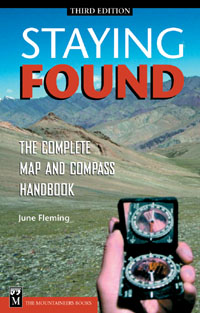 I love maps. To me, maps are about possibility and adventure, what’s out there, a whole wide world bigger than me. Just looking at a map of hiking trails me, makes me excited to think about what I will see. And nothing primes me more for a big road trip than looking at the road atlas. Looking at Google maps on my iPhone just isn’t the same. At home, I have an entire box filled with maps from pretty much everywhere I’ve lived, and many of the places I’ve visited (or want to visit). Maps of cities, maps of national parks, Gazetteers of entire states are part of my giant map collection. I am very much a visual person, so being able to see a map all spread out on a table gives me a sense of the big picture, and how best to proceed. So I find myself cringing every time I try to use a map to give directions, and someone says “I’ll just put it in my GPS.” There’s no way to capture what Rocky Mountain National Park is all about, and what there is to see and do by punching Rocky Mountain National Park, Estes Park, CO into your GPS or smart phone. On top of that, GPS does not work particularly well in mountainous or rural areas, and expecting that it will, is a recipe for getting lost. Many a park visitor has gotten incredibly lost using GPS to navigate themselves through park lands. One of the scariest stories I heard, was of three women who, using GPS found themselves in the middle of the desert in Death Valley where they ran out of gas, and nearly died, from following their GPS “directions.”
I love maps. To me, maps are about possibility and adventure, what’s out there, a whole wide world bigger than me. Just looking at a map of hiking trails me, makes me excited to think about what I will see. And nothing primes me more for a big road trip than looking at the road atlas. Looking at Google maps on my iPhone just isn’t the same. At home, I have an entire box filled with maps from pretty much everywhere I’ve lived, and many of the places I’ve visited (or want to visit). Maps of cities, maps of national parks, Gazetteers of entire states are part of my giant map collection. I am very much a visual person, so being able to see a map all spread out on a table gives me a sense of the big picture, and how best to proceed. So I find myself cringing every time I try to use a map to give directions, and someone says “I’ll just put it in my GPS.” There’s no way to capture what Rocky Mountain National Park is all about, and what there is to see and do by punching Rocky Mountain National Park, Estes Park, CO into your GPS or smart phone. On top of that, GPS does not work particularly well in mountainous or rural areas, and expecting that it will, is a recipe for getting lost. Many a park visitor has gotten incredibly lost using GPS to navigate themselves through park lands. One of the scariest stories I heard, was of three women who, using GPS found themselves in the middle of the desert in Death Valley where they ran out of gas, and nearly died, from following their GPS “directions.”
Bryon and I found this out first hand when we went to Pawnee Buttes earlier this year, and decided we would use the GPS to get us back to Boulder. It gave us a route of several county roads to take — a left turn there, a right turn here, until we were heading down a road, and the GPS said to take a right turn into a field — no road anywhere to be seen. What did we do? We pulled out our trusty, well-worn Colorado state map.
And while hiking or backpacking, knowing the basic skill of map reading and using a compass is indispensable. Yes, GPS can help you, but it should not be depended on entirely, and in fact, can malfunction as well. To me, learning orienteering and how to use a map was great fun, and helped me better understand topography, something else GPS can’t tell you. One of my favorite books I got early on when I started hiking and backpacking alone was a book called Staying Found, The Complete Map and Compass Handbook, which is all about basic orienteering skills. So for today, I’d like to put a subtle plug in for the fine art of map reading — technology is great, but there are still times that having a map is the only way to get to where you are going. Or to help yourself from getting lost in the first place.

